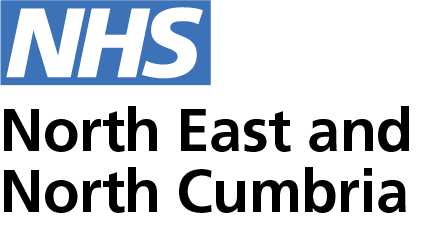Region driving women's healthcare innovation, say NHS leaders

Our region is a driving force for better women's health – that's the message from the NHS as it gears up for a major healthcare innovation event.
The latest lifesaving technologies and initiatives will be in the spotlight at a special event hosted by the North East and North Cumbria Integrated Care Board (ICB) in Gateshead this week [Thursday 11 July].
The event also sees the launch of the Big Conversation, to understand what matters most to women about their health, plus a detailed study of women's health which will help to address gaps in services and improve women's health outcomes, particularly in more deprived areas.
The region's NHS kicked off its women's health programme last year with a £600,000 investment in three women's health hubs in Sunderland, Gateshead and North Cumbria.
The new study, called a regional needs assessment, highlights further areas for action around conditions like poly-cystic ovary syndrome and endometriosis and improving access to postnatal contraception. It also shows there is more work needed so women in deprived communities can benefit from HRT (hormone replacement therapy) during the menopause as much as women in more affluent areas.
Samantha Allen, the ICB's chief executive, said: "We want our region to be at the heart of a revolution in women's health. The NHS has achieved so much for us all, but it hasn't always understood women's distinctive health needs as well as it could. We need to change that.
"Women live longer than men, but spend more of their lives in sickness or disability. Eight out of ten women say there have been times when they were not listened to by health professionals, so it's clear that we need to learn from their lived experience. If we can make things better for girls and women, everyone benefits.
"We are highlighting the latest solutions for women's healthcare but also challenging everyone to play their part, talk about women's health and raise awareness.
"So today we are launching the Big Conversation – to get people talking about women's health and help us shape our plans. It's time to recognise that women have distinctive health needs, to listen and act on women's views and experiences. All of us – not just women – have a part to play."
Bringing together leading figures in women's health, the event features innovators like Aiatella, a Newcastle-based startup working to revolutionise the way cardiovascular scanning identifies heart disease risks.
There is a significant gender health gap in cardiovascular disease (CVD), with women more frequently misdiagnosed than men. This often leads to a delay in diagnosis and can mean women don't get the best treatment for their needs, resulting in poorer outcomes for women. Early detection of CVD can dramatically improve a patient's prognosis, often saving lives.
Jack Parker, co-founder of Aiatella, said: "Aiatella's AI-powered software can address this important gap in women's healthcare. Currently, analysis of cardiovascular scans is a time-consuming process that requires manual 'click-and-drag' measurements with a computer mouse by highly trained clinicians.
"Our solution revolutionises this by delivering accurate reliable analysis over 100 times faster. The software also assesses a patient’s historical images, which enables precision medicine application. This technology has the potential to significantly reduce the gender health gap in CVD by improving early detection and allowing for personalised treatment.
"By automating the time-consuming parts of scan analysis, we can provide clinicians with data that is immediately actionable. That means patients flow quicker through the system and clinicians have more time to focus on prevention work."
Also in the spotlight is Sedgefield-based IBEX Innovations, whose pioneering new software is set to revolutionise diagnosis of osteoporosis, a disease which impacts more women than breast cancer, heart attacks and strokes combined. Currently one in four women break a bone due to osteoporosis and 80% of those go undiagnosed.
Using a simple wrist x-ray, the technology integrates into breast screening appointments to identify women at risk, and take preventive action to avoid debilitating fractures.
Samantha Allen added: "New technologies can make a big difference, and it's great to see that we are leading the way in our region. But that's just part of the picture – our regional needs assessment shows a number of areas where we need to take action.
"It backs up what many women have already told us – that they need easier access to postnatal contraception, and more care and support during the menopause. Over the coming months, we want to hear more people's views through the Big Conversation."
Dr Nicola Hutchinson, chief executive officer at Health Innovation North East and North Cumbria, said: “I am delighted that we are working together to make women’s health a priority and support health and social care innovations to boost the regional economy, address inequalities and ultimately improve the health of women and girls.
“We have already taken strides to reduce the widening health inequalities gap through our Innovation for Healthcare Inequalities Programme, and it is particularly important to build on this by listening to women living in areas of deprivation and underserved populations across our region."
The Big Conversation will kick off with a major survey gathering views from women across the North East and North Cumbria, with support from the region's Healthwatch organisations. It will focus on areas like menstrual health and gynaecological conditions, menopause and cancer, as well as fertility, pregnancy loss and postnatal support.
To find out more, visit our women's health programme page.
